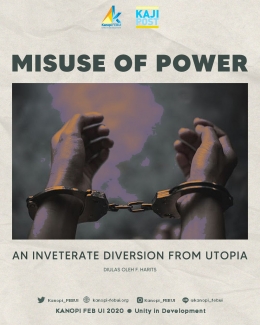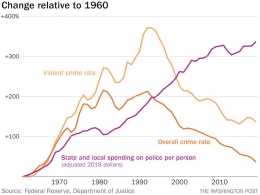Both of these principals strive for one ultimate goal – providing/receiving social protection. However, several police officers choose to deviate from this singular goal and decide to execute on their self-interest.
This relationship may attribute to “overpolicing” practices in which a great number of incarcerations are levied on minor criminal offenders while also utilizing excessive coercive forces. “Problem officers” who practice those misconducts may be driven by their “authoritarian” personalities (Balch, 1972) and no longer focus on attaining the goal at hand (providing protection).
Problem officers may indeed comply with the goal assigned by the principals but may instead choose to deviate in the methods used to accomplish said goal. “The end justifies the means” greatly describes this particular case of misconduct. Goal-oriented organizations create individual and organizational pressure to succeed on said goal thus increasing individuals’ willingness to achieve the desired objectives even through criminal means (Dodge, 2009). Problem officers may be deluded by their compulsion to attain the ambitious goal of social protection and even resort to the aforementioned practices of overpolicing and usage of overly coercive forces just to achieve said goal.
The personal and societal repercussions of police misconduct are clear and severe. However, similar to defining its unequivocal cause, to distinguish an ideal resolve to such a complex predicament is strenuous.
Curtailing funding, an effective Solution?
Numerous attempts have been made to resolve the police brutality predicament but mostly to no avail. One ambitious approach first implemented in the US by the Obama administration in 2015 was to equip body cameras on all officers of the law. Alas, despite having allocated generous amounts of resources, reports have failed to identify solid, empirical proof of statistically significant improvement in reduced police misconduct resulting from the equipment of body cameras on law enforcement.
A solution that has been scrutinized for a considerable amount of time is defunding the police. As mentioned before, one fundamental catalyst of abuse of power practices effectuated by law enforcement is the abundance of resources levied on to them.
A significant slice of national budgets across the globe are dedicated to provide the supposed “peace officers” sufficient funds to perform their duties. The Land of Liberty itself apportioned 4% of the total combined state and local expenditures towards police funding in 2017. In China the internal security budget totals $210 billion (20% larger than its military defense spending).
Defunding involves reallocating a portion of the funds originally designated for law enforcement into the provision of other public goods deemed necessary for communities, such as mental health professionals and specialized human capital to deal with homelessness. Defunding also aims to abate police’s window of opportunity to practice abuse of power by diminishing the resources available to be utilized by them.
The prevalence of such an unorthodox idea can be observed by the plentiful amount of state representatives already agreeing to divest from the police. Seventeen cities have exhibited their compliance to defund the police and shift their investment into another sector. As a manifestation of his approval of police divestment, Bill de Blasio as the Mayor of the Big Apple has decided to shift a sizable amount from the police department’s annual budget and instead utilize it to fund social services.
Barring the handful iconoclasts, a portion of the population has discovered two potential repercussions of defunding the police force. Firstly, the officers’ responses towards the imposed budget cuts would instead reduce funding on programs not directly involved in daily acts of policing (Southers, 2020). These may include youth development programs and community services, which are law enforcement’s most quintessential contributions towards bettering future generations.







